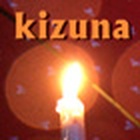I lived in Sendai, Japan (1995 to 2003) where I worked as an English teacher and correspondent for the Nikkei Voice newspaper in Toronto, Canada. I travelled extensively throughout the Tohoku Region that has been devastated by the March 11th tsunami and earthquake. My wife, Akiko, is from Sendai where her family lives. I still have many friends that I correspond with who live in the affected area. I am writing the “Great Tohoku Disaster” with the intent to give Discover Nikkei readers a truer sense of the magnitude and extent of this catastrophe from the point of view of a Sansei who still has deep connections with the area.
Friday, March 11
I awoke as usual on Friday morning at 6:30 on March 11th, turned on the TV, as usual to watch Heather Hiscox on CBC-TV to bring me up to date on the world news, then, “An 8.9 magnitude Earthquake in Japan!” I was dumbfounded, calling my wife, Akiko, to see what was going on. She was brushing her teeth. The reporter was frantic. Not only had one of the biggest earthquakes in history struck Japan, it had hit the Tohoku region where I had lived in Sendai for eight years and where Akiko’s family still lives.
8.9 !! I was in shock with a similar feeling of disbelief like when I saw the 2 airplanes slam into the Twin Towers on September 11.
I watched the film footage with a sense of horror as the TV images of the tsunami slamming into the coastline of northeastern Japan, an area that I have travelled to many times and is dear to my heart, repeated over and over again. The names of the coastal villages and towns: Ishinomaki, Kesennuma, Miyako, Matsushima, Shiogama, Miyako are places that resonate with special meaning for me.
I made it to school in shock. Being the day before the March Break started for the kids, my feelings and theirs was incongruous. Joan, the grade 4 teacher in the portable across the way from mine, popped in. “I’ve heard what’s happened in Japan,” she said with concern, “I’m very sorry.” Some of students were aware of what had happened in Japan, but there really wasn’t much news at the time and all I was doing was hoping for the very best as so many friends and relatives are living there.
Throughout the rest of the day, a few colleagues offered condolences for the tragedy and I was constantly thinking and worrying about the scale of the destruction and finding it very hard to accept that this tragedy had struck a part of the world that is as dear to me as Toronto. So many ideas and feelings were rushing through my head: were my family and friends okay? My pal Senji Kurosu’s wife, Atsuko, works at the Sendai International Airport that took a direct hit from the tsunami. Where the hell was Tomo at the time? Wasn’t he on spring break? Had the school year started yet for the colleges and universities where he worked? How was Akiko’s family? Her mom, Ayako, lives on the 12th floor of a condominium in the downtown Itsutsubashi area, not far from Sendai train station. Her sister, Hiromi, lives close by in an older Lions Mansion. Were any of these buildings still standing??!! Many other friends are relatives live throughout the affected area. These were all huge question marks as I sent out frantic e-mails in the morning to them all, getting no responses, and feeling the panic set in over here on the other side of the planet.
When I got home, Akiko was glued to the TV, frantic, panicking, in a state of shock and horror as the same scenes of destruction were played over and over again on CBC TV.
We were frantic. We couldn’t get through to anybody in Sendai.
Finally, Akiko is able to get through to sister and family and they are fine. They live in the Miyagidai area of Sendai, well away from the coastline.
The media was fanning the flames of hysteria. Or, could things possibly be as bad as what was being reported?
There was terror in the air.

Arahama, gutted and pushed up the inside of the dike. Norm's friend, "Tomo" in Sendai, was so heart-broken that he cried when he got home after riding around the town. His bike is on its side in the foreground. He cycled further towards the sea, but he was in such shock over the destruction, that he never thought to take a picture. He has adored Arahama ever since he arrived, and now it is a rotting ruin—gone for the most part. Some people are still missing. (Photo courtesy of Lorne Spry)
© 2011 Norm Ibuki






